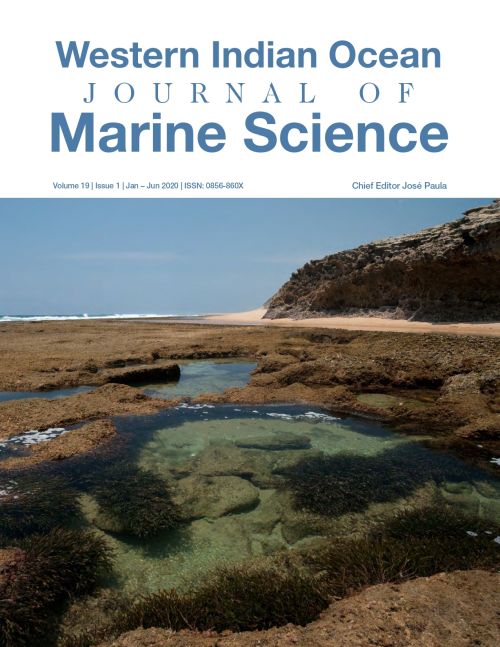Main Article Content
The role of indigenous knowledge in the management of marine resources: a case study of Kuruwitu and Mkunguni fishing areas in Kenya
Abstract
Indigenous knowledge (IK) in the management of natural resources, and especially marine resources, has received increasing attention in recent years. The use of IK is due to its extensive contribution to the management of local resources and the spiritual, cultural and economic well-being of local communities. This study aimed to identify the existing types of IK and practices used in the management of marine resources. The study was conducted through a descriptive survey design using semi-structured questionnaires, Key Informant Interviews, field observations and Focus Group Discussions. The results revealed that the community relied on IK for weather forecasting to plan for fishing activities which subsequently regulated marine resource exploitation. The use of IK in the location of marine fish species and favourable conditions enables the fishers to understand the factors driving fish catches within these ecosystems. IK of sustainable resource-use allows the fishers to devise environmentally friendly fishing gears and reduce the use of deleterious fishing methods. Pearson’s Chi-squared test was performed on selected variables that influenced the possession of IK among the residents in the two study areas. The Chi-square test revealed a significant association between IK and meetings (p= 5.524e-09), and IK and age (p=0.023), while IK and education level were not significant (p=0.712). The study recommends the development of conservation strategies that include IK for the management of marine resources at the local level, including consideration of all socio-economic factors.






